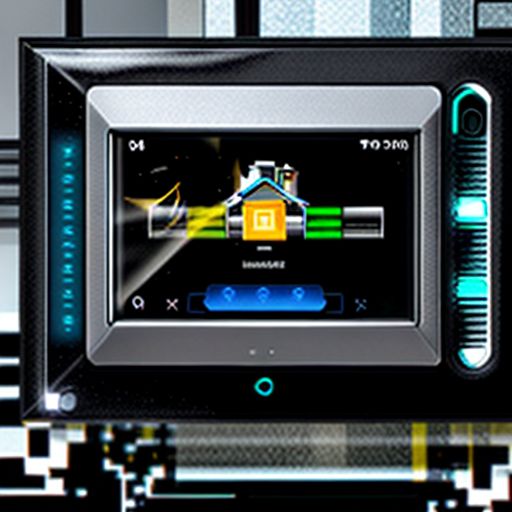Feeling safe and secure in your own home is a basic human need. But with rising crime rates, it’s no wonder that more and more people are turning to home security systems for peace of mind. Choosing the best home security system for your needs, however, can feel overwhelming with the sheer number of options available. That’s where this comprehensive guide comes in. We’ll break down everything you need to know, from understanding different types of systems to key features and factors to consider.
Understanding Your Home Security Needs
Before diving into the specifics of various systems, it’s crucial to assess your individual needs and priorities.
What are Your Security Concerns?
- Theft Deterrence: Are you mainly concerned about protecting your belongings from burglary?
- Intrusion Alerts: Is your priority to be instantly notified of any unauthorized entry?
- Environmental Monitoring: Do you need a system that also alerts you to fire, smoke, or carbon monoxide?
- Personal Safety: Are you looking for features like panic buttons or medical alert integration for elderly family members?
What is Your Budget?
Home security systems can range from DIY setups to professionally installed systems with monthly monitoring fees. Defining your budget upfront will help narrow down your options.
What Level of Control Do You Want?
Some systems offer remote control and monitoring via smartphone apps, while others might have limited or no smart home integration.
security.yougaming.xyz/wp-content/uploads/2024/07/home-security-system-control-panel-669227.jpg" alt="Smart Home Security System Control Panel" width="512" height="512">Smart Home Security System Control Panel
Types of Home Security Systems
Now that you have a clearer picture of your needs, let’s explore the main types of home security systems available:
1. DIY Home Security Systems
- How they work: These systems typically involve wireless sensors that you install yourself and control through a central hub. They often connect to your home Wi-Fi, allowing you to monitor and control the system remotely.
- Pros: Affordable, easy to install, flexible, portable (can be moved if you relocate).
- Cons: Limited professional monitoring options, potential for vulnerabilities if not installed properly.
- Ideal for: Budget-conscious homeowners comfortable with basic installation and tech setup.
2. Professionally Installed and Monitored Systems
- How they work: Security professionals install and configure the system, which is typically hardwired and connected to a central monitoring station. In case of an alarm trigger, the monitoring station will contact you and dispatch emergency services if necessary.
- Pros: Professional installation ensures reliability, 24/7 monitoring provides peace of mind, often includes environmental monitoring.
- Cons: More expensive, often require contracts, less flexibility for customization.
- Ideal for: Homeowners who prioritize professional monitoring and want comprehensive security coverage.
3. Smart Home Security Systems
- How they work: These systems integrate with your existing smart home ecosystem, allowing you to control security features alongside lighting, temperature, and other smart devices.
- Pros: Seamless smart home integration, remote control and monitoring via smartphone apps, potential for automation and customization.
- Cons: May require a higher level of technical proficiency, dependence on internet connectivity, potential privacy concerns.
- Ideal for: Tech-savvy homeowners who want a fully integrated and automated home security solution.
Key Features to Consider
When evaluating different home security systems, here are some essential features to compare:
- Sensors and Detectors: Door/window sensors, motion detectors, glass break sensors, smoke detectors, carbon monoxide detectors.
- Control Panel: User-friendly interface, battery backup, cellular backup in case of internet outage.
- Cameras: Indoor and outdoor cameras, live streaming, recorded footage storage, night vision capabilities.
- Alarms and Sirens: Loud siren to deter intruders, options for customizable alarm sounds.
- Monitoring Options: Professional monitoring plans, self-monitoring via mobile app, cellular backup monitoring.
- Smart Home Integration: Compatibility with other smart home devices and platforms.
- Mobile App: Remote control and monitoring, real-time alerts, customizable settings.
FAQs about Home Security Systems
- What is the average cost of a home security system? Costs vary greatly depending on the type of system, equipment, and monitoring plan. DIY systems can range from a few hundred dollars to over a thousand, while professionally installed systems can cost several thousand dollars upfront plus monthly fees.
- Can I install a home security system myself? Yes, many DIY systems are designed for easy self-installation. However, if you’re not comfortable with basic wiring and tech setup, it’s best to opt for professional installation.
- Do I need a permit to install a home security system? Some municipalities require permits for security system installation, especially if it involves hardwiring or external modifications to your property. Check with your local building department for regulations in your area.
- What happens if the power goes out? Most security systems have battery backups to ensure they remain functional during power outages. Some systems also offer cellular backup for monitoring services in case of internet disruptions.
Conclusion: Making the Right Choice for Your Peace of Mind
Choosing the best home security system is a personal decision. By understanding your needs, exploring the different options, and considering key features, you can make an informed choice that provides you with the security and peace of mind you deserve. Remember, your home is your sanctuary, and protecting it should be a top priority.
Do you have any experiences with home security systems you’d like to share? What features are most important to you? Share your thoughts in the comments below!
